Joe Parrish-James : Talking Tull
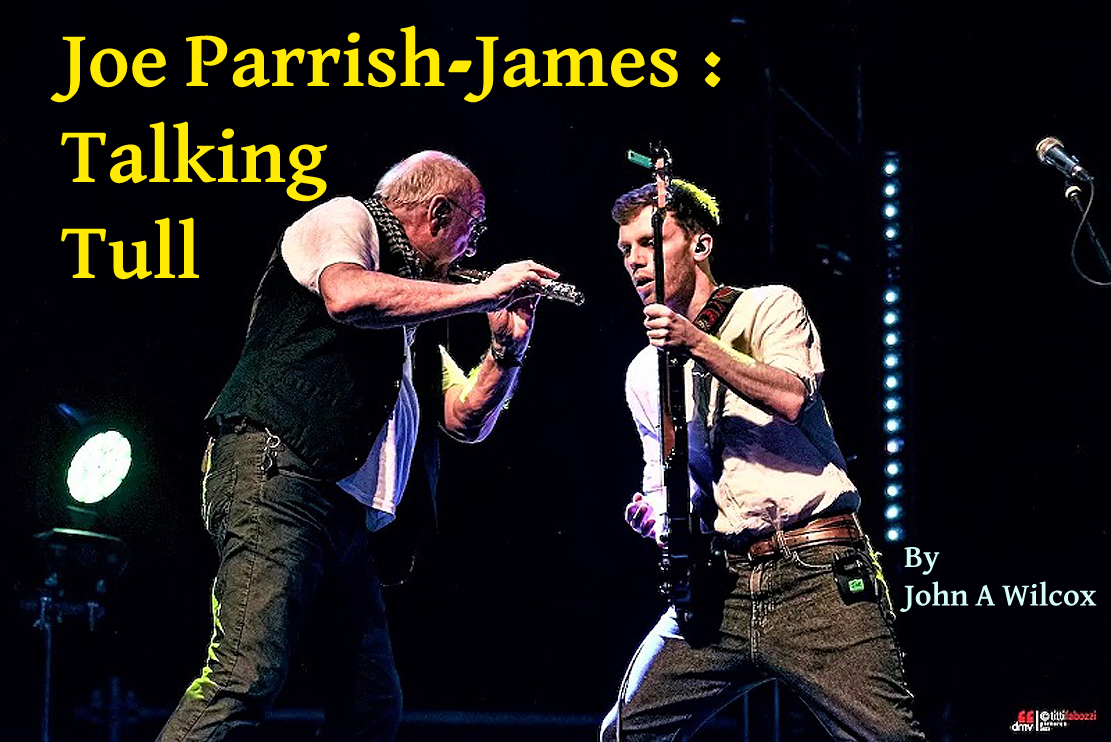
by John A. Wilcox
The latest lad to occupy the guitar slot in Jethro Tull is Joe Parrish-James. He's a young man in his late 20s, but he plays with skill, precision, and knowledge some guitarists never gain in a lifetime. Joe sat down with Progsheet while on the road for Tull's The Seven Decades tour. Grab a cuppa & join us...
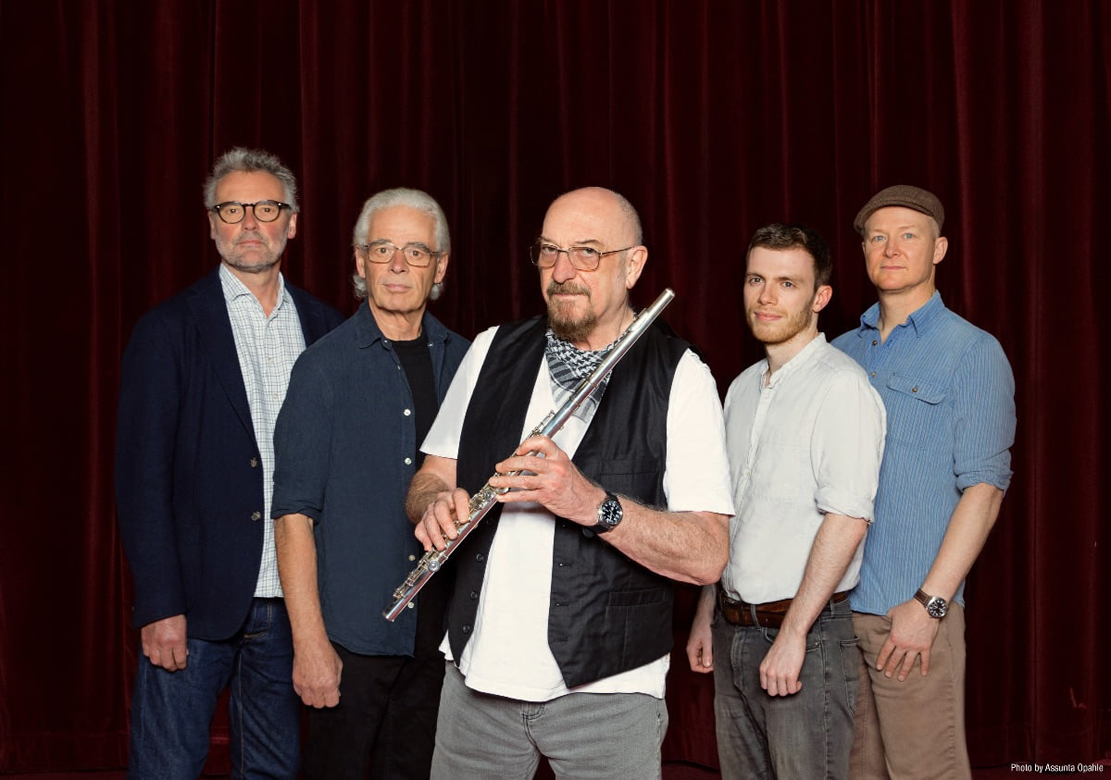
PS: How did you and Ian Anderson first come to meet?
JPJ: I think at the start of 2019. I was at music college in London. I heard through the grapevine from kind of a friend of a friend that Ian and the band might be looking for another guitar player. Potentially if I put together a sort of audition video of me playing Tull material or whatever, they might be able to get Ian to see it. So I put something together and kind of learned tricky parts from a few different songs. Bits from different periods of the repertoire. Didn't really think anything would come of it. I put the video on my YouTube channel and then kind of forgot about it for about a month or maybe 2 months. In early spring of that year I then had an email in my box appear from Ian Anderson. I thought "Oh, wow!" He was just asking me - he complimented the video. My playing. He said "What are you doing? Where are you living? What's your schedule like?" All the rest of that kind of thing. So I told him and then didn't really hear anything for quite a while because I think the idea was for Florian to finish the rest of that touring cycle that year. Much later on in the summer or early autumn of that year Ian then finally got in contact with me again and offered to meet me and to actually discuss the logistics of the tour and all the ins and outs of that. So we met for a curry, which is usually the case with Ian. It's his favorite food. After that he invited me over to his house to actually audition. To rehearse-slash-audition with the rest of the guys. That was the first time.
I traveled from where I live - sort of north of London - a couple of hours west to where Ian lives. He asked me to learn 5 or 6 songs. You know, mainly the classics like Songs From The Wood, Thick As A Brick, maybe Farm On The Freeway - something like that. And then when I got home he offered me the job. Then it was kind of quiet for me for a while because Florian was going to be out that year. Then I would technically join the band in the start of 2020. Which I did. And we prepared for that tour which was going to be the Prog Years tour. Playing some new stuff. Well, playing some old stuff that hadn't been played for a long time or had never been played. A sort of proggy set. We went off to Spain in February of that year. Did a couple of shows there. My first shows. And then we flew to Finland in March of that year and almost immediately got sent home. Because of Coronavirus. That was my first experience with Ian and the band.

PS: When you first met & played with the band, did everything immediately click?
JPJ: Well, obviously, I was somewhat familiar with Tull music before I joined the band. I mean I didn't know all the albums but I definitely knew certainly some of the albums from the seventies quite well. I was familiar with the role of the guitar in the band. How it works with the other instruments and that kind of thing. From a musical point of view nothing threw me off or caught me by surprise. To be honest, straight from the word "go" I could tell they were all really nice guys. They were all very welcoming. I guess they were all interested to have a new person in the band after such a long time. Those guys - the 5 of them - Florian, Scott, John, Dave, Ian had been that 5 for quite a long time. Around 10 years I think when I joined the band. Having a new personality in the band was also a big change for them as well. But everyone was really welcoming. Musically we all really jelled well. We all share certain things in our musical backgrounds and we all speak the same language - the same musical language. The communication is good. It's clear what everyone wants from everyone else. And what Ian wants from everyone. The way we're trying to execute the songs.
PS: Are you given latitude in the solo sections to make the songs your own?
JPJ: Yeah. My general ethos on that is more to do with how integral is the part to the actual song? Also, how well known is it? I'm not going to start playing around with the Aqualung riff or something like that. It's a famous part. Maybe if something's a little bit more obscure or has a more improvised feel. More of a solo-istic section. I kind of do half-and-half though, really. I don't just put my own stamp on it whenever I feel like it. Quite a lot of parts - even the solo parts I play... in the song Dark Ages for example - all of the lead stuff that I do in there is almost exactly what's on the original Stormwatch album. Because those parts work great and there's no need for me to put my own signature on it just for the sake of it. Equally with a song like Farm On The Freeway - that has a lot of little licks and guitar fills and stuff that are all completely figured out and actually quite an integral part of the song. So I'm not going to change anything like that.
We do a completely different version of Aqualung. All re-worked. It's kind of orchestral and does different nods to parts from the original song but has a completely different structure and a completely different solo section over different chords and different backings. For that I do my own solo. Because it's not over the same section that the original Aqualung solo was over. It's just a case of weighing up where I can do more of my own thing and where it's actually better to play what's on the original album because that's probably what most people are familiar with.

PS: What most attracts you to playing Tull material?
JPJ: Well, a lot of things, really. Whether you love them or hate them you can't really deny that they are unique as a rock band. It's kind of hard to think of a rock band from that era that musically is unique as Tull. As I said earlier, the role of the guitar in the band is not your standard rock guitar role. Sometimes it is. Sometimes it's about riffs and solos. But sometimes it's not. Sometimes it's more about little parts here and there that just decorate something else that's going on or just compliment something else that's going on. Or textural - just ornamenting other things. It's almost more of a classical or traditional sort of arranging thing.
A lot of rock bands the guitar player just plays full-on all the time. Big chords. Big riffs. For basically the whole song. whereas in Tull the role of the guitar in the arrangement is always changing. There's a lot of dynamics. There's a lot of dropping out, letting that instrument do something. There's a lot of call-and-response. Someone plays a lick there, then the keyboard does a reply and then the flute does a reply. It's all quite figured out in that way. From a playing point of view it's fun and sometimes a challenge to figure out what the role of the guitar is in each section.
Also, just from my own enjoyment of the music. I can remember being a kid and my parents had the Thick As A Brick original LP. One of the LPs from the seventies with the fake newspaper in it and all that. I remember listening to it and enjoying it as a young kid. Listening to Songs From The Wood as a 10 year old. Finding it almost amusing how twee and bucolic and nostalgic that album is. But also growing to really love it at the same time. There's my own personal enjoyment of the music and also it's interesting musically as well.
PS: To what you were speaking to earlier, all instrumentation must ultimately be in service of the composition.
JPJ: It's to do with arrangement. It's to do with the nuance and different textures. Different dynamics. Different effects. All that kind of thing. It's music that's in sort of perpetual flux. It's always changing. There's not really many Tull songs that are the same all the way through. There are a couple. But usually there's big changes throughout the song in terms of the arrangement. The atmosphere. Whatever it is.
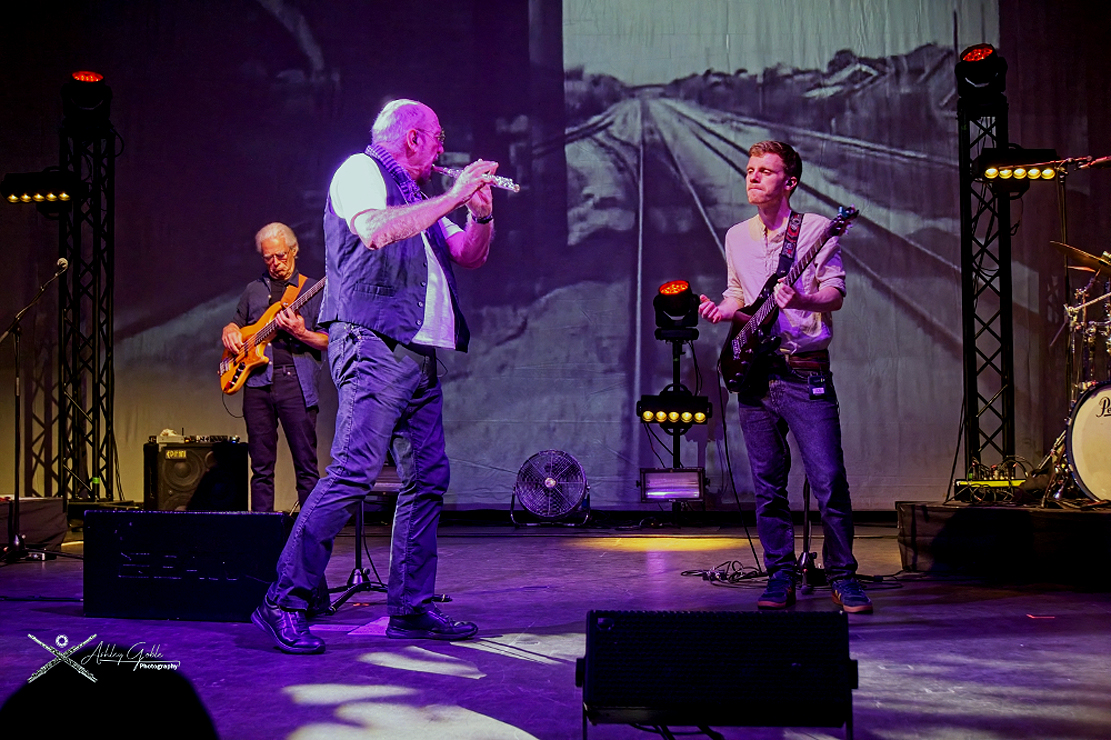
PS: Do you feel that there were any huge stylistic differences between Florian's and Martin's playing?
JPJ: I wouldn't say huge stylistic difference. Obviously every guitar player has their own style and their and their own way of doing things that will never be exactly the same as anyone else. As I say, the role of guitarist in Jethro Tull has been established for a number of years. Florian didn't emulate Martin but he gave the guitar that role. The role that it needed in the band. So some things are always going to be kind of similar. A lot of it is about complimenting Ian's composition. Adding to or contributing something to Ian's core songwriting idea.
I wouldn't say I noticed anything wildly different. Obviously when it comes to solos and stuff, yeah, obviously they're very different. Because a solo is where you put your musical personality as a performer out there. As opposed to figured out parts which might not be purely your invention. They might be dependent on what another instrument is doing. It's less of you and more of just contributing to the song. Whereas a solo is more your own personal touch.
PS: Were you given carte blanche on RokFlote or were most of the parts already there?
JPJ: There's a few things that are there but they tend to be more just chordal things that are on the basic demos that Ian does to start the whole process. A lot of the more decorative, more involved stuff - a lot of that on the album is my own invention. Obviously with a nudge from Ian. It was fun. I enjoy the process of writing music and composing music probably even more than I do performing it. I love both. Being in a studio actually creating something, crafting something. That's kind of my favorite thing. To be in the studio environment with the band and actually come up with those kind of ideas and come up with guitar parts that compliment the flute or work in a different way with the keyboard or whatever it might be. That's where I really enjoy myself. There was a fair amount of leeway for what could be done. It's just a case of whether Ian likes it and whether he thinks it fits the song. Usually no news is good news. If I put something down on a track and he's happy with it, it's there for good.
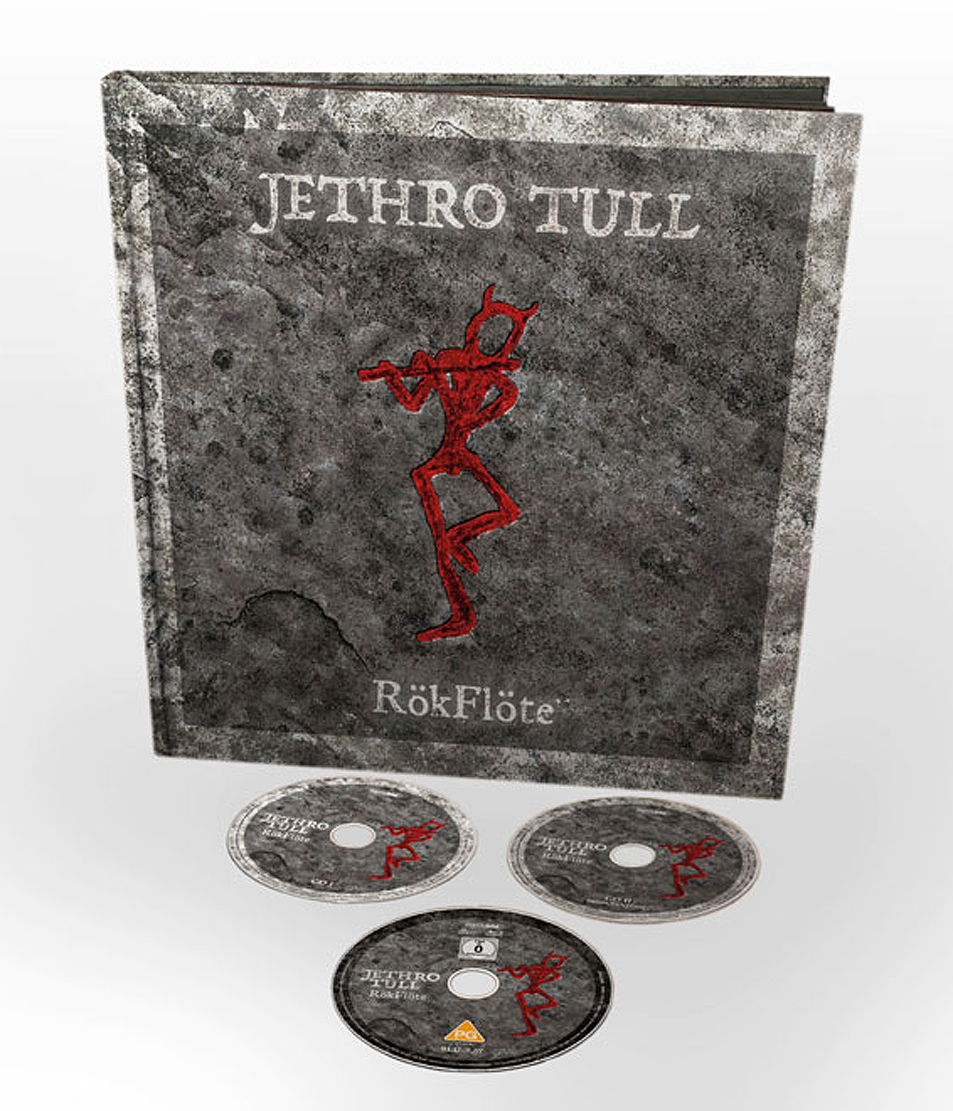
PS: Was it all recorded remotely or was everyone together?
JPJ: It's very much in person, really. Ian sent around the original demos which were mainly just guitar and flute, and then some notes on what he wants the final arrangement to do. But before each studio session where we would record a song or 2 we would meet in a rehearsal space and just run through the songs and actually add things. Embellish things. Fill out the arrangements. Make it from just a demo into the full thing. That was all in person with direct conversations. Trying things out. Trial and error. All that kind of thing.
PS: Is there already another album in the works?
JPJ: Not from my end. I don't know. I couldn't possibly tell. I'm the wrong person to ask.
PS: Lots of variety in the set including Faure's Pavane In F#m. How did that end up in there??
JPJ: Ian does all the setlist things, but I would say obviously he's trying to cover the whole 7 decades. Like with anything. Like with an album track listing or a live set you want variety. You want a bit of everything. That goes for the tempo of the songs. The time signature and the key of them. You don't want it to seem the same. There's big rocky more upbeat numbers like Hunt By Numbers which is very riff-driven. And then Pavane is very soft, almost waltz-like. I think it's a case of trying to get lots of variety in there from a lot of different albums. When you've got 20+ albums its a lot to choose from. I think it's a very eclectic set of music and there's surprises in there for sure.
PS: Switching gears, tell me about your band Albion.
JPJ: Actually, that band was formed in the same year I joined Tull. So we formed around the summer of 2019. When I finished my degree I'd had an idea for a long time to do a sort of folk-inspired rock metal project. I pulled together musicians. Friends of mine who I'd played with in other bands who I knew would be interested. We formed under the name Albion. Albion being am archaic classical name from antiquity for the British Isles. Usually connected to the mythology and legend surrounding that country and that nation.
Musically the identity is very much - I consider it folk music, but amplified. It's electric folk music essentially. Some of it's quite heavy in terms of guitar playing and the aesthetic of it. But the actual notes, the pitches - it's all inspired by Celtic, basically. The lyrics are as well. All the lyrics are usually something to do with the Arthurian legend or Welsh mythology. I'm half Welsh. A lot of the lyrics are stories or folk tales or myths that I remember hearing as a child or going to various places in Wales that are linked to King Arthur and Merlin and all the rest of that. Obviously it's not dissimilar to some of the stuff that Tull has done in that regard. I play flute in the band as well as guitar. Obviously people will make the connection with Tull but I did very much want it to be its own thing. I've always had a fascination with the original stuff I saw from hundreds of years ago when folk songs were collected by musicologists and put into indexes. Written down and preserved in an oral tradition for hundreds of years. I usually try and go to the source material from hundreds of years ago.
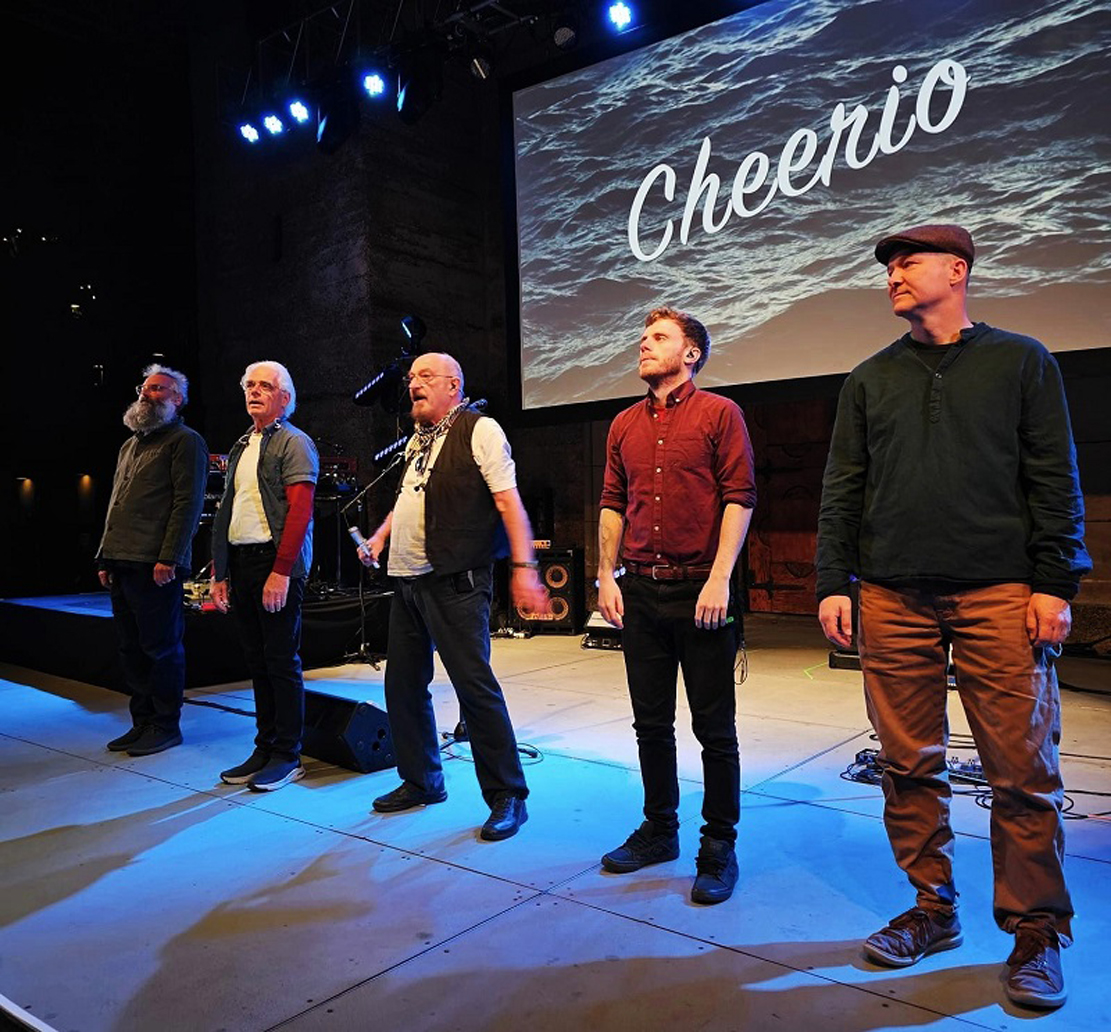
Jethro Tull - The Seven Decades
Sunday, October 29, 7:30 PM
Mohegan Sun Arena
1 Mohegan Sun Blvd
Uncasville, CT 06382
(860) 889-1771
Mohegan Sun Arena
###
All photos are copyright their respective owners.
Table Of Contents
Contact







